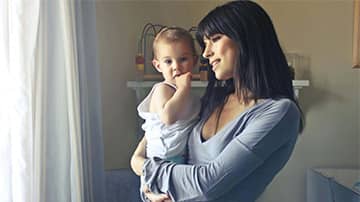Information and advice for parenting and children
Going through a divorce can be one of the most challenging times in a person's life, especially when children are involved. At Mediation First, we understand the complexities and emotional toll that divorce proceedings can have on families. Our goal is to provide you with guidance and support to help you navigate your next steps.

What are typical child contact arrangements?
If you are a parent and are considering a separation or divorce.....

Co-parenting vs parallel parenting
Some couples that separate or go through a divorce, may find that they can maintain an amicable relationship......

A step-by-step guide to completing a C100 form
Understanding how to fill in a C100 form is crucial for those seeking to resolve disputes......

Relocating after divorce with a child
Whether you wish to relocate to another part of the UK or move permanently abroad .....

Reasons to Stop Child Contact
Ideally, both of a child's parents would be equally involved in caring for them. However, everyone's circumstances are different .....

Guide to making a C2 form application
If you are applying for a court order regarding child arrangements, the formal process is to make an application on a C100 form......

Reasons to vary a child arrangement order
When a relationship ends, making decisions about the welfare of any children can be challenging.....

Co-parenting tips for divorced parents
Divorce is rarely easy, especially with children involved.....

What can I do if I am denied access to my child?
Being denied access to your child can be a challenging experience.....

Can a mother stop the father seeing the child in the UK?
During a divorce or separation, emotions can run high......

What should child maintenance cover?
Ensuring the wellbeing of your child remains a top priority......

Parental responsibility: Your rights in England and Wales
Understanding your parental rights and responsibilities is crucial.....

How can I see my child without going to court?
Navigating the path of parenthood can be a daunting journey.. .....

What rights does a father have to see his child?
It is not uncommon for a parent to refer to their ability to have a relationship with their child....

A guide to child arrangements
The journey of figuring out child arrangements after separation can be tough....

What to do if your child refuses contact with the other parent
Dealing with a situation where your child refuses to see their other parent can be challenging.......

What questions does a mediator ask a child?
Navigating family disputes and divorces can be challenging, and it's essential to prioritise the wellbeing of children involved.......

A guide to child-inclusive mediation
Divorce can be a difficult and stressful experience for children, and their well-being should be a top priority......

Making a parenting plan
A parenting plan is a written document created by separated parents that outlines how they will parent their children following separation....

Grandparents’ rights to see grandchildren
his article looks at the rights that grandparents have to see their grandchildren....
Speak to a parenting and divorce mediator
Facing parenting and divorce challenges? Our team offers both online and in person family mediation services to help you find amicable solutions from the comfort of your home. Flexible and accessible, our services are designed to ease the process for families in transition.
Reach out today at 0330 320 7600, email office@mediationfirst.co.uk. or, fill out our online form on our contact page.
